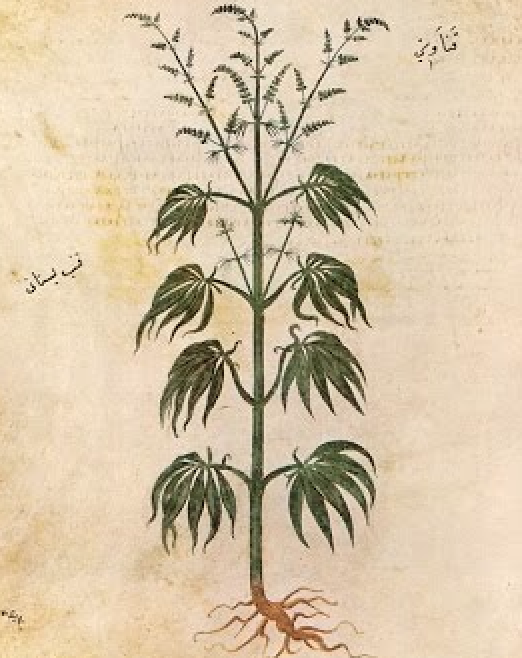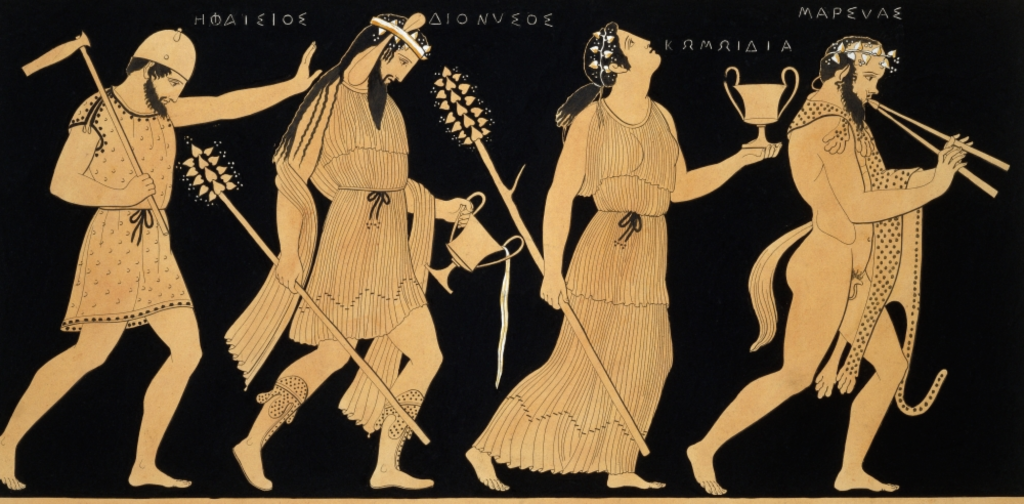"The myths and philosophy of ancient Greece have influenced Western Society in many profound ways. Considering the metropolitan nature of Greece, it would be hard to believe that they too, would not have come under the spell of a magical plant that was so clearly popular in the ancient world and surrounding cultures. Clearly Greek knowledge of the plant went far beyond its use as a fibre. As Michael Lahanas records in his well researched essay ‘Examples of Ancient Greek Medical Knowledge’, “The ancient Greeks used cannabis as a remedy to treat inflammation, earache, and edema (swelling of a body part due to collection of fluids)” (Lahanas, 2006)."
Despite the subjugation of Greece by the Ottoman Turks during the Middle Ages, the Greeks were almost totally unaware of hashish and its effects prior to the nineteenth century.
The first mention of the drugs occurred in 1837 and this was based on a Bavarian text. In an 1855 pharmacology text, cannabis is described as "a plant, indigenous in the East and especially in Persia, but cultivated in many areas of Europe and Greece". Apparently, the author was familiar with hemp fiber but not hashish. It was not until 1875 that the plant's medicinal and narcotic properties were alluded to in the Greek medical texts.
The entry of hashish into mainland Greece occurred some time between 1870 and 1880 following the development of Piraeus as a major trade depot in the Aegean. Immigrants from Egypt, Cyprus, and various Mediterranean countries streamed to the port city in search of work, and not surprisingly they brought with them their hashish habit.
Hashish usage, however, was confined primarily to the poor. The drug, in fact, was nicknamed the "weed of the poor" and was a favourite among dock workers, shippers, cargo carriers, wagoners, deckhands, and barmen. Local demand among the working classes became so great for the drug that cultivation of cannabis became a major enterprise, with enough grown for export to other countries.
Middle-class Greeks, however, quickly became concerned about the spreading use of hashish. They saw the drug as a social danger and they regarded hashish users as degenerates and criminals. "Criminal," in fact, soon became a popular term for users of hashish.
By 1890, the authorities became so alarmed at the widespread use of hashish that they officially outlawed the cultivation, importation, and usage of the drug, but the law was not strictly enforced and hashish usage was only minimally affected.
After World War I, a dramatic rise in hashish usage occurred in Greece prompted by the return of Greek soldiers and the repatriation of about a half million Greek citizens from Asia Minor. These soldiers and citizens had been living in areas where hashish was accepted and
cultivation was a normal part of life. When these people returned to the Greek mainland, they brought their acquired habits and familiarity with hashish with them.
During the 1920s, Greece became a major producer of hashish.
According to one chronicler of the times, it was not uncommon for women returning from the hashish harvest to enter their villages covered with flowers and singing and dancing as if they were drunk. Their unconventional behavior at such times was generally attributed to their being overcome by the fumes from ripe cannabis blossoms.
Although hashish use is still prevalent in Greece, its popularity fell after the German occupation of World War II, primarily because most of the users died of starvation.
This article contains documentation from “Marihuana The First Twelve Thousand Years”, by Ernest L. Abel

 Photo Source
Photo Source Photo Source
Photo Source
Leave a comment